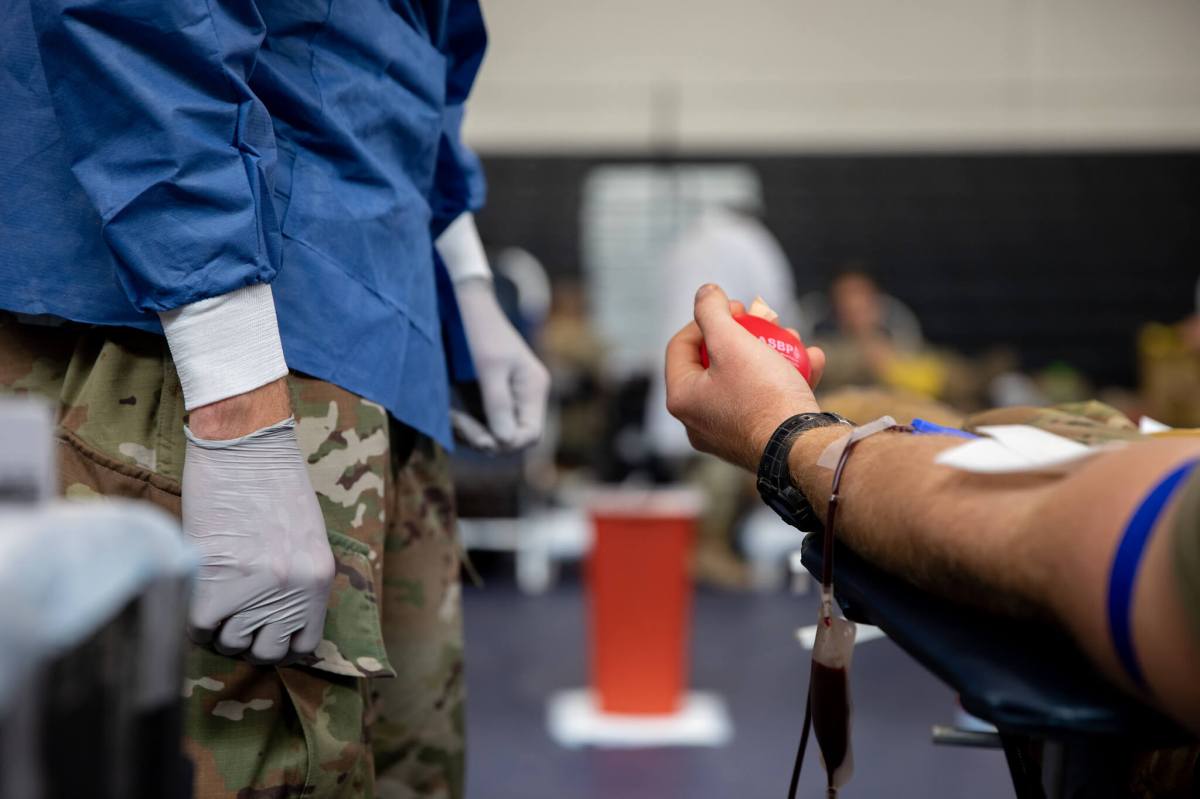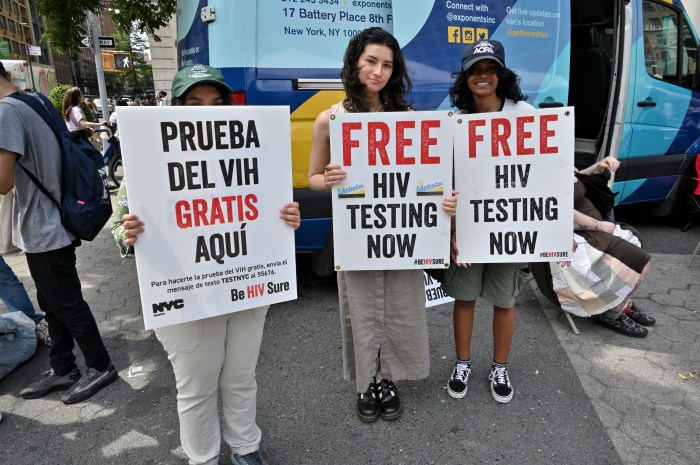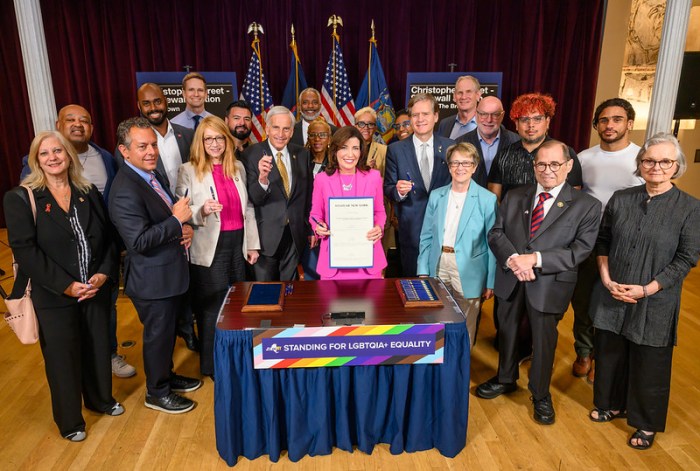Citing urgent supply shortages, blood banks are encouraging eligible LGBTQ individuals to volunteer their arms after the US Food and Drug Administration (FDA) loosened restrictions on blood donations among men who have sex with men earlier this year.
The Red Cross announced last month that it updated its eligibility policy in accordance with the change at the federal level, while the New York Blood Center plans to begin welcoming eligible LGBTQ donors as early as the week of Sept. 18.
Blood banks are hoping the updated policy will prompt more people to donate blood at a time when New York is facing what the New York Blood Bank describes as “dangerously low levels of O+, O-, B-, and platelets,” though all blood types are needed.
“For decades, we have strongly advocated for scientifically-based changes to the FDA policies regarding gay and bisexual men and this recent decision by the FDA is a huge step toward making blood donation more inclusive,” Andrea Cefarelli, senior vice president at New York Blood Center, said in a written statement. “We look forward to welcoming these new donors to our centers and blood drives, especially during a national blood emergency and following a tough summer with low donor turnout. We’re currently experiencing a blood emergency and both new and regular donors are desperately needed.”
The latest version of the policy allows certain monogamous gay and bisexual to donate blood, but not all gay men. Under the new approach, prospective blood donors are required to complete a questionnaire asking whether they have had new or multiple sex partners in the last three months and whether they had anal sex. Individuals would be blocked from donating blood if they report having a new sex partner or multiple sex partners in the last three months and having anal sex.
Furthermore, those who are living with HIV and who take PrEP or PEP are barred from donating, according to the FDA. Those who take oral PrEP must wait three months from their last dose in order to donate, while those who receive PrEP injections can only donate after waiting two years from their last injection.
The New York Blood Center said it has adopted the donor history questionnaire, updated computer systems regulated by the FDA, trained staff members on the new policy, and updated operational procedures.
The updated policy followed the completion of the “Assessing Donor Variability And New Concepts in Eligibility” (ADVANCE) Study, which was used to justify the new regulations. The Biden administration faced pressure from the LGBTQ community to update the policy, but out gay Congressmember Ritchie Torres of the Bronx told Gay City News last year that the president wanted to respect the process that was underway at the FDA to study the issue.
The federal government’s discriminatory restrictions on gay blood donors date back to 1983 when the FDA banned men who have sex with men from donating blood for life. Over the years, the policy has been gradually relaxed, and the most recent update prior to this one stipulated that men who have sex with men were eligible to donate as long as they abstained from having sex with other men for at least three months. Before that, men who have sex with men had to endure a 12-month deferral window before becoming eligible.



































